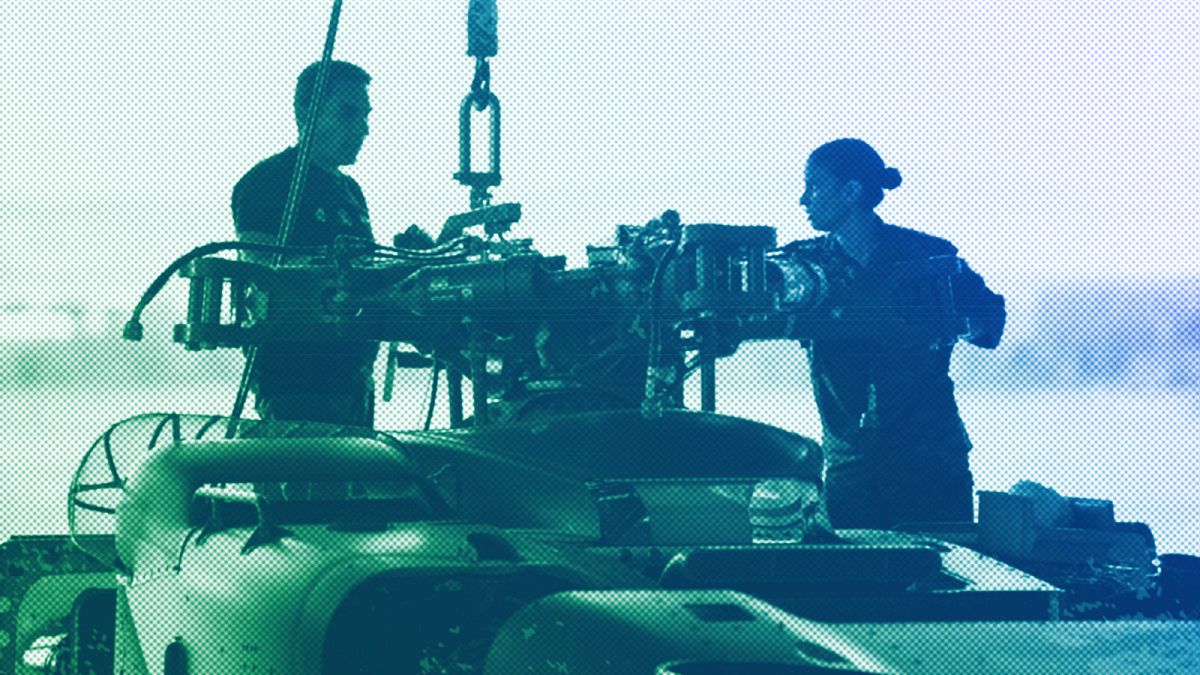The opinions expressed in this article are those of the author and do not represent in any way the editorial position of Euronews.
War in Europe, dragging conflict in the Middle East, rising global tensions, and accelerating climate disruption demand faster, more strategic, and united European action.
With its democratic values, industrial strength, and commitment to sustainability, Europe can hold its ground and lead the way in a rapidly changing world – if it acts boldly and decisively.
Europe must reinforce its foundations in four key areas: security, sustainability, competitiveness, and innovation.
Denmark, with its strong commitment to European unity, environmental leadership, and pragmatic industrial policy, is well-positioned to lead this effort.
Russia’s war against Ukraine and shifting geopolitical realities are reshaping Europe’s security architecture. The
EU and its member states – Denmark among the frontrunners – alongside the UK and Norway, continue to provide vital support to Ukraine and have reaffirmed their commitment to strengthening Europe’s defence posture. This ambition must be backed by sustained political and financial support.
Defence budgets are rising and collaborative initiatives are underway, but processes must accelerate. The capability targets approved by NATO earlier this month must translate into long-term procurement contracts that give industry the visibility and planning certainty it needs.
Aggregating demand and harmonising requirements across European countries will reduce complexity and enable economies of scale, thus increasing efficiency, reducing cost, shortening delivery times, and enhancing interoperability. Europe must accelerate joint procurement and fully utilise instruments like SAFE and EDIP.
Strategic planning for Europe’s security must also embrace a wider perspective: protecting Europe’s critical infrastructures is fundamental to strengthening our security and resilience against evolving hybrid threats.
The European defence industry is fully committed, capable, and ready to continue developing critical capabilities and to further ramp up production, deliver at pace, and meet Europe’s and its NATO allies’ defence needs with state-of-the-art equipment and solutions.
A strong and innovative European defence industry is indispensable for Europe’s security – it is a defence capability in itself. Therefore, we must drastically reduce critical non-European dependencies. “Buy European” is a strategic imperative.
Sustainability through strength
Europe is a global pioneer in climate policy and environmental standards. But this leadership is under pressure.
To succeed in the green transition, we must align our environmental goals with industrial competitiveness.
Deindustrialisation is not the path to decarbonisation. The goal must be to reduce environmental impact through a globally competitive European industry – preserving economies, jobs, and social welfare.
Building on the strength of its world-class aircraft, engine, equipment and Air Traffic Management (ATM) manufacturers, the European civil aeronautics industry remains one of the few high-tech sectors where Europe leads globally. That leadership must be protected as we transition to climate-neutral flight.
The European aviation industry has committed to net zero by 2050 and is driving innovation including advanced propulsion systems and next-generation, more fuel-efficient aircraft. But this transformation depends on a supportive policy and investment environment.
In particular, there is an urgent need to establish a functioning market for Sustainable Aviation Fuels (SAF), which will play a critical role in the sector’s decarbonisation.
One immediate and critical step: ensure that civil aviation is fully included in the upcoming Sustainable Transport Investment Plan (STIP). Without targeted EU funding, even breakthrough technologies may struggle to scale.
As a powerhouse of innovation, the European aeronautics industry has the potential to drive the decarbonisation of a global sector and strengthen Europe’s industrial leadership.
Securing Europe’s technological future
Europe’s future competitiveness will be shaped by its ability to innovate and responsibly industrialise next-generation technologies.
From space and AI to quantum, autonomous systems, cybersecurity, and environmentally advanced solutions, Europe’s aerospace, security and defence industries – with a supply chain of thousands of companies – are at the forefront of the next wave of technological innovation.
Yet Europe lags in innovation investment compared to global competitors, and internal fragmentation slows progress.
Unlocking our full potential requires fewer barriers, faster R&D cycles, and funding mechanisms that span civil and defence domains.
Europe has shown what’s possible. Flagship space programmes like the world’s leading navigation satellite system Galileo and Earth observation programme Copernicus prove our ability to deliver when vision, partnership, and political support align.
We must build on those successes, with an industrial strategy that places aerospace, security, and defence at the heart of Europe’s technological sovereignty. The next multi-annual EU budget must reflect this priority.
The world is changing fast. As Denmark takes the helm of the EU Council, it has a real opportunity to prioritise Europe’s security, resilience, competitiveness and technological leadership.
With the right policies, investments, and coordination, Europe can rise to this moment. The European aerospace, security, and defence industry stands ready to deliver.
Micael Johansson is Aerospace, Security and Defence Industries Association of Europe (ASD) President and CEO of Saab, and Jan Pie is ASD Secretary General.
Read the full article here


